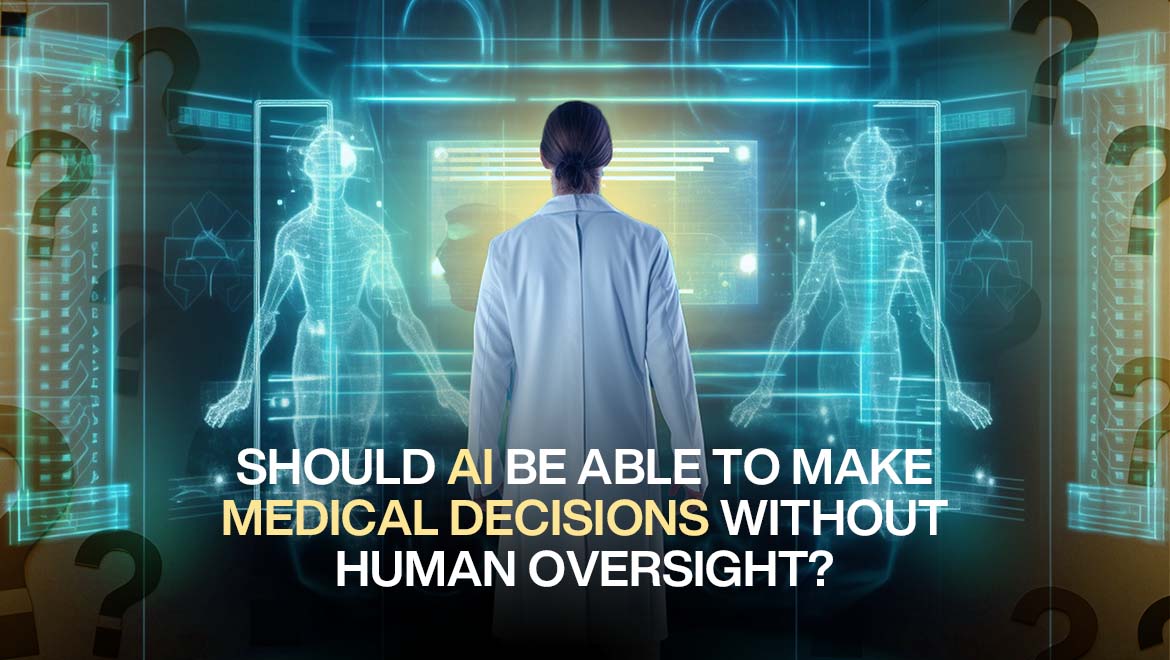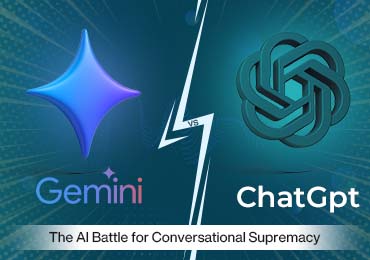

- By Admin
- 10 June, 2025
- 5 min Read
Should AI Be Able to Make Medical Decisions Without Human Oversight?
The rise of Artificial Intelligence (AI) in healthcare has sparked both excitement and concern. From predicting disease outbreaks to recommending personalized treatments, AI has already shown immense potential in transforming how we deliver medical care. But as technology evolves, a crucial ethical and practical question arises: Should AI be able to make medical decisions without human oversight?
This debate isn’t just theoretical anymore. With AI-powered tools becoming increasingly sophisticated and autonomous, the implications of allowing machines to make decisions about human health are significant—and potentially life-altering. Let’s explore both sides of this conversation and consider what a balanced path forward might look like.
The Case For Autonomous AI in Medicine
Unmatched Speed and Efficiency
One of the strongest arguments in favor of allowing AI to make decisions without human oversight lies in its ability to process vast amounts of medical data at lightning speed. An AI model can analyze thousands of MRI scans, lab reports, or patient histories in seconds, identifying patterns that even the most experienced doctor might overlook. In emergency settings where every second counts—such as detecting a stroke or heart attack—autonomous AI could save lives by acting faster than a human ever could.
Consistency and Objectivity
Unlike human clinicians who can be influenced by fatigue, stress, or cognitive bias, AI systems are inherently consistent. They follow data-driven protocols without personal bias or emotional distraction. This consistency could significantly reduce diagnostic errors and ensure more standardized care across different regions and demographics.
Bridging the Accessibility Gap
In many parts of the world, access to skilled healthcare professionals is limited. AI could serve as a crucial lifeline in underserved areas by diagnosing diseases or recommending treatment options where doctors are scarce. In these scenarios, allowing AI to operate independently may be better than offering no care at all.
The Case Against AI-Only Medical Decision-Making
Lack of Empathy and Human Judgment
Medicine is not just a science; it’s also an art that requires understanding patient emotions, values, and life context. AI lacks emotional intelligence and cannot consider the subtle nuances that influence clinical decisions. A machine might choose a treatment path purely based on statistical success, while a human doctor might weigh a patient’s fears, cultural background, or family dynamics before making the same decision.
Ethical and Legal Accountability
When something goes wrong, who is responsible? If an AI system misdiagnoses a condition or prescribes the wrong medication, the consequences can be severe. Without human oversight, it becomes murky to assign accountability. Is it the software developer, the hospital, or the machine itself? These unanswered questions make full autonomy a dangerous prospect.
Data Bias and Systemic Inequality
AI systems are trained on data—and data isn’t always fair. Historical biases in healthcare data can lead to AI models that discriminate against certain racial, gender, or socioeconomic groups. If AI systems make decisions without human checks, these biases could go unchallenged, potentially widening healthcare disparities.
Technical Limitations and Unpredictability
AI can make errors when faced with outlier cases or unexpected situations. Machine learning models operate on probabilities, and even a high-accuracy system can fail in rare or complex cases. Unlike a doctor, who can use intuition and broader medical experience to adapt to uncertainty, AI might misfire or produce unreliable outputs if the scenario falls outside its training dataset.
Striking the Balance: Human-in-the-Loop AI
Most experts agree that the future of AI in medicine lies not in full autonomy, but in collaboration—a model known as human-in-the-loop. In this approach, AI serves as an advanced support system, providing diagnostic suggestions, treatment predictions, or risk assessments, while a licensed healthcare professional makes the final decision.
This hybrid model combines the best of both worlds: AI’s analytical power and the human touch needed for ethical and empathetic care. Doctors remain in control, but their decisions are enriched and augmented by AI-driven insights.
